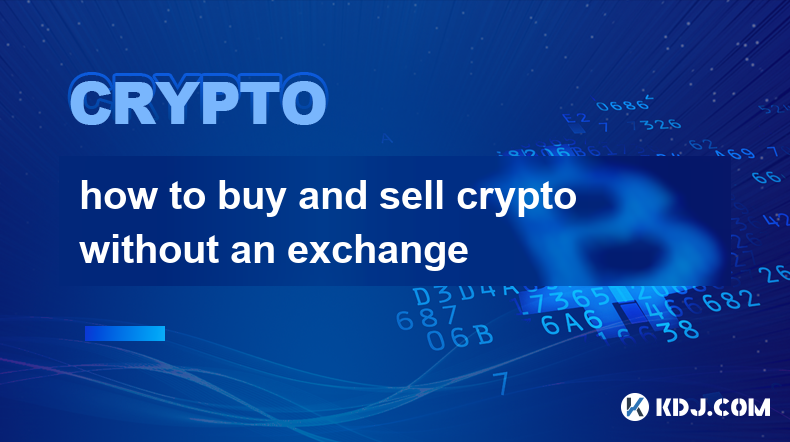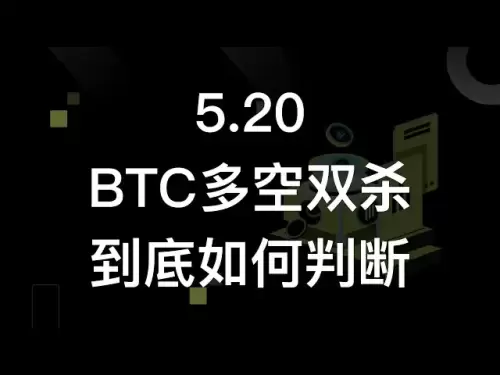-
 Bitcoin
Bitcoin $104,472.1496
1.03% -
 Ethereum
Ethereum $2,478.2261
1.99% -
 Tether USDt
Tether USDt $1.0003
0.01% -
 XRP
XRP $2.3298
0.17% -
 BNB
BNB $642.1970
0.14% -
 Solana
Solana $165.7475
1.57% -
 USDC
USDC $0.9998
0.00% -
 Dogecoin
Dogecoin $0.2194
0.05% -
 TRON
TRON $0.2728
3.08% -
 Cardano
Cardano $0.7271
-0.59% -
 Sui
Sui $3.8137
2.79% -
 Chainlink
Chainlink $15.5313
1.45% -
 Avalanche
Avalanche $22.0204
0.42% -
 Stellar
Stellar $0.2814
-0.19% -
 Hyperliquid
Hyperliquid $25.7826
0.18% -
 Shiba Inu
Shiba Inu $0.0...01423
-0.16% -
 Hedera
Hedera $0.1923
1.91% -
 UNUS SED LEO
UNUS SED LEO $8.7097
1.35% -
 Bitcoin Cash
Bitcoin Cash $386.7779
0.62% -
 Toncoin
Toncoin $3.0567
3.85% -
 Polkadot
Polkadot $4.5422
0.14% -
 Litecoin
Litecoin $93.4619
-2.70% -
 Monero
Monero $348.0587
0.76% -
 Bitget Token
Bitget Token $5.0942
-0.77% -
 Dai
Dai $0.9999
0.00% -
 Pepe
Pepe $0.0...01272
-1.45% -
 Pi
Pi $0.7351
2.87% -
 Ethena USDe
Ethena USDe $1.0005
0.00% -
 Aave
Aave $261.4906
17.30% -
 Bittensor
Bittensor $416.3790
3.79%
how to buy and sell crypto without an exchange
Navigating peer-to-peer (P2P) crypto trading involves choosing a reliable partner, understanding escrow services for risk mitigation, adhering to KYC/AML compliance regulations, and following a structured trading process to ensure a secure and seamless transaction.
Feb 01, 2025 at 12:12 am

Unlocking Crypto Trading Without Exchanges: A Comprehensive Guide to Peer-to-Peer Transactions
Key Points:
- Embracing Decentralized Markets: Exploring peer-to-peer (P2P) platforms for secure and private crypto transactions.
- Choosing the Right Trading Partner: Vetting potential counterparties, assessing reputation, and establishing clear communication channels.
- Understanding Escrow Services: Utilizing escrow platforms to mitigate risk and ensure the secure exchange of funds and assets.
- Mastering KYC and AML Compliance: Adhering to legal requirements and best practices to prevent fraudulent activities and ensure regulatory compliance.
- Navigating P2P Transactions: Step-by-step instructions on initiating, completing, and finalizing peer-to-peer crypto trades.
Embracing Decentralized Markets: Discovering Peer-to-Peer (P2P) Platforms
P2P crypto marketplaces provide an alternative to centralized exchanges, empowering users with direct control over their transactions and eliminating the need for intermediaries. These platforms operate on a decentralized architecture, connecting buyers and sellers without relying on a central authority. By fostering direct peer-to-peer interactions, P2P markets enhance privacy, security, and flexibility.
Several reputable P2P platforms have emerged, offering a diverse range of features and services. Here's a brief overview of some notable players:
- Bisq: A decentralized exchange offering atomic swaps for enhanced security.
- LocalBitcoins: A well-established P2P platform with a global presence.
- Paxful: A user-friendly platform providing diverse payment options and escrow services.
- Hodl Hodl: An escrow platform specializing in high-value crypto transactions.
- OpenBazaar: A decentralized marketplace that facilitates peer-to-peer trading of various digital assets.
Choosing the Right Trading Partner: Vetting and Communication
In the P2P trading realm, selecting a trustworthy counterparty is paramount. Before initiating a transaction, thoroughly evaluate potential partners, considering the following factors:
- Reputation and Feedback: Examine public reviews and feedback from previous transactions to assess the credibility of the individual.
- Communication: Establish clear communication channels to ensure seamless and timely responses throughout the transaction process.
- Transaction History: Review the counterparty's prior trading activities to gather insights into their experience and reliability.
- Security Measures: Inquire about the security measures implemented by the counterparty, including two-factor authentication and cold storage practices.
- Payment Methods: Determine the payment methods accepted by the counterparty and ensure they align with your preferred method of payment.
Understanding Escrow Services: Mitigating Risk and Ensuring Trust
Escrow services play a vital role in P2P crypto transactions, serving as a neutral third party that holds funds and assets securely until the terms of the trade are met. By utilizing escrow services, buyers can mitigate the risk of fraud and non-delivery, while sellers can secure payment before releasing their assets.
Various escrow platforms are available, each offering unique features and levels of security. The following are some key factors to consider when choosing an escrow service:
- Fees and Commissions: Compare the fees and commissions charged by different escrow providers to ensure they align with your financial constraints.
- Dispute Resolution: Understand the policies and procedures for resolving disputes and ensuring fair outcomes in the event of disagreements.
- Insurance and Security: Verify the level of insurance and security measures implemented by the escrow service to protect funds and assets from potential breaches.
- Reputation and Reviews: Research the reputation of the escrow service and read reviews from previous users to gauge its reliability and effectiveness.
- Supported Assets: Confirm that the escrow service supports the specific cryptocurrencies you intend to trade.
Mastering KYC and AML Compliance: Staying Within Legal Bounds
Know Your Customer (KYC) and Anti-Money Laundering (AML) regulations play a crucial role in combating financial crime and ensuring the integrity of P2P crypto transactions. These regulations require individuals and businesses involved in crypto trading to provide personal information and documentation to verify their identities and prevent illegal activities.
To comply with KYC and AML requirements, consider the following steps:
- Document Verification: Submit government-issued identification documents, such as passports or driver's licenses, to verify your identity.
- Address Verification: Provide proof of address, such as utility bills or bank statements, to confirm your residential address.
- Source of Funds Verification: If requested, provide documentation to demonstrate the legitimate source of funds used for crypto purchases or withdrawals.
- Ongoing Monitoring: Be prepared for ongoing monitoring of your trading activities to detect suspicious patterns or potential money laundering attempts.
- Record Keeping: Maintain accurate records of all your crypto transactions, including the identities of counterparties and the details of each trade.
Navigating P2P Transactions: A Step-by-Step Guide
- Identify Your Counterparty: Find a suitable trading partner through a reputable P2P platform and conduct thorough due diligence.
- Agree on Terms: Negotiate the terms of the trade, including the price, payment method, and delivery mechanism.
- Initiate Escrow: Select an escrow service and create an escrow account to facilitate the secure transfer of funds and assets.
- Send Funds to Escrow: Transfer the agreed-upon amount in cryptocurrency to the escrow account.
- Release Assets: Once payment is confirmed, the seller releases the cryptocurrency to the buyer's designated address.
- Complete the Trade: Confirm the successful completion of the trade and release the funds from the escrow account to the seller.
- Provide Feedback: Leave feedback for your trading partner, assessing their
Disclaimer:info@kdj.com
The information provided is not trading advice. kdj.com does not assume any responsibility for any investments made based on the information provided in this article. Cryptocurrencies are highly volatile and it is highly recommended that you invest with caution after thorough research!
If you believe that the content used on this website infringes your copyright, please contact us immediately (info@kdj.com) and we will delete it promptly.
- The big story in financial markets is not just global bond-market jitters, it's also bitcoin's (BTC) stability above $100,000.
- 2025-05-20 22:05:13
- AAVE Extends Bullish Streak, Gaining 21% as Bitcoin Pepe (BPEP) Prepares for May 31 Listing
- 2025-05-20 22:05:13
- As Ethereum Takes the Spotlight, a Group of Altcoins Emerges as the New Market Darlings
- 2025-05-20 22:00:54
- Support for the ethDYDX-DYDX Bridge (the “Bridge”) and the ability to migrate ethDYDX from Ethereum to DYDX on the dYdX Chain is expected to end on June 9, 2025 as a consequence of a community governance proposal.
- 2025-05-20 22:00:54
- Bitcoin dominance tests key resistance at 64%, failing which could boost altcoins' momentum
- 2025-05-20 21:55:13
- XRP Price Prediction: Ripple (XRP) Token Could Reach a $1,000 Valuation
- 2025-05-20 21:55:13
Related knowledge

What is Ethereum’s Slashing mechanism and how to punish malicious behavior?
Feb 20,2025 at 03:08am
Key PointsOverview of slashingDifferent types of slashing in EthereumIncentives and consequences of slashingIdentifying and reporting slashed validatorsOngoing discussions and potential improvementsEthereum's Slashing Mechanism: Punishing Malicious BehaviorEthereum's slashing mechanism is an essential tool for ensuring network security and punishing mal...

What is the verifier node of Ethereum and how to become a verifier?
Feb 19,2025 at 06:00pm
The Verifier Node of Ethereum: A Comprehensive GuideKey Points:What is a Verifier Node?How to Become a Verifier NodeResponsibilities and Rewards of a Verifier NodeMinimum Requirements for Becoming a Verifier NodePotential Difficulties in Running a Verifier Node1. What is a Verifier Node?A Verifier Node is an independent entity on the Ethereum network th...

What is Ethereum’s staking, and how to participate and earn money?
Feb 19,2025 at 04:37pm
Key Points:Understanding Ethereum's Staking MechanismSteps to Participate in StakingBenefits and Rewards of StakingSecurity and Risk ConsiderationsTechnical Requirements and Hardware OptionsPotential Challenges and Troubleshooting TipsFAQs on Ethereum StakingWhat is Ethereum's Staking?Proof-of-Stake (PoS) is a consensus mechanism used in blockchain netw...

What is Ethereum’s DAO (Decentralized Autonomous Organization) and how does it work?
Feb 20,2025 at 03:12am
Key PointsDefinition and Structure of a DAOGovernance and Decision-Making in DAOsBenefits and Use Cases of DAOsChallenges and Limitations of DAOsWhat is Ethereum's DAO (Decentralized Autonomous Organization) and How Does It Work?Definition and Structure of a DAOA Decentralized Autonomous Organization (DAO) is an innovative governance and management fram...

What is Ethereum's multi-signature wallet and how to improve security?
Feb 20,2025 at 02:18pm
Key Points:Understanding the Concept of a Multi-Signature WalletBenefits and Drawbacks of Multisig WalletsRequirements for Setting Up a Multisig WalletStep-by-Step Guide to Generating a Multisig WalletImplementing Strategies for Enhanced Security1. Understanding the Concept of a Multi-Signature WalletA multi-signature (multisig) wallet in the Ethereum e...

What is Ethereum's oracle and how to provide data for smart contracts?
Feb 21,2025 at 01:30am
Key Points:Understanding the concept of oracles in EthereumExploring different types of oraclesDetailed guide on how to provide data for smart contractsAddressing potential challenges and considerationsWhat is Ethereum's Oracle?Oracles are crucial components in the Ethereum ecosystem, enabling smart contracts to access real-world data and off-chain even...

What is Ethereum’s Slashing mechanism and how to punish malicious behavior?
Feb 20,2025 at 03:08am
Key PointsOverview of slashingDifferent types of slashing in EthereumIncentives and consequences of slashingIdentifying and reporting slashed validatorsOngoing discussions and potential improvementsEthereum's Slashing Mechanism: Punishing Malicious BehaviorEthereum's slashing mechanism is an essential tool for ensuring network security and punishing mal...

What is the verifier node of Ethereum and how to become a verifier?
Feb 19,2025 at 06:00pm
The Verifier Node of Ethereum: A Comprehensive GuideKey Points:What is a Verifier Node?How to Become a Verifier NodeResponsibilities and Rewards of a Verifier NodeMinimum Requirements for Becoming a Verifier NodePotential Difficulties in Running a Verifier Node1. What is a Verifier Node?A Verifier Node is an independent entity on the Ethereum network th...

What is Ethereum’s staking, and how to participate and earn money?
Feb 19,2025 at 04:37pm
Key Points:Understanding Ethereum's Staking MechanismSteps to Participate in StakingBenefits and Rewards of StakingSecurity and Risk ConsiderationsTechnical Requirements and Hardware OptionsPotential Challenges and Troubleshooting TipsFAQs on Ethereum StakingWhat is Ethereum's Staking?Proof-of-Stake (PoS) is a consensus mechanism used in blockchain netw...

What is Ethereum’s DAO (Decentralized Autonomous Organization) and how does it work?
Feb 20,2025 at 03:12am
Key PointsDefinition and Structure of a DAOGovernance and Decision-Making in DAOsBenefits and Use Cases of DAOsChallenges and Limitations of DAOsWhat is Ethereum's DAO (Decentralized Autonomous Organization) and How Does It Work?Definition and Structure of a DAOA Decentralized Autonomous Organization (DAO) is an innovative governance and management fram...

What is Ethereum's multi-signature wallet and how to improve security?
Feb 20,2025 at 02:18pm
Key Points:Understanding the Concept of a Multi-Signature WalletBenefits and Drawbacks of Multisig WalletsRequirements for Setting Up a Multisig WalletStep-by-Step Guide to Generating a Multisig WalletImplementing Strategies for Enhanced Security1. Understanding the Concept of a Multi-Signature WalletA multi-signature (multisig) wallet in the Ethereum e...

What is Ethereum's oracle and how to provide data for smart contracts?
Feb 21,2025 at 01:30am
Key Points:Understanding the concept of oracles in EthereumExploring different types of oraclesDetailed guide on how to provide data for smart contractsAddressing potential challenges and considerationsWhat is Ethereum's Oracle?Oracles are crucial components in the Ethereum ecosystem, enabling smart contracts to access real-world data and off-chain even...
See all articles























































































